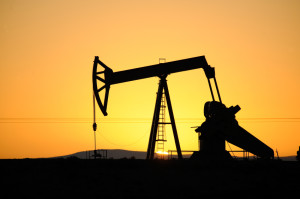Worldlog week 24 – 2014
The government has finally decided to reduce taxes on labour in order to create more jobs. We are pleased that the minister understands that levies on wages is like paying excise duty on labour; it makes unnecessary expense and restricts the use of it. For years we have been pleading for a needed turnaround in the tax system, which does not tax valuables such as labour, but taxes everything that puts pressure on our living environment.
There are several ways to bring down taxes on labour. One of these ways is the Ex’tax, advocated by Eckart Wintzen. Payroll tax, for example, can be replaced by Extracted Value Tax, to be paid on everything that puts pressure on nature, the environment and raw materials reserves. This way we encourage the re-use of raw materials and stimulate employment at the same time. Bad behaviour will be taxed, not good behaviour.
A second way to make labour considerably cheaper, without having to reduce net wages or purchasing power, is the tried and tested PROHEF system. To compensate the lower government income for the loss of the withholding taxes, a levy may be implemented on the booked result, this is slightly comparable to how the VAT system works. However, this is not a ‘consumer tax’ but a ‘producer tax’ that is paid in arrears, in exchange for lower wage costs. The consumer will notice very little of this, the entrepreneurial risk will be drastically reduced and employment can grow because entrepreneurs will no longer be punished for taking on new staff.
We will continue to endeavour for a tax system which has the incentives required for a sustainable way of living and a good employment climate!
Last week, we asked Parliamentary Questions on shale gas drilling in Argentina. A report called ´Heading south – the dash for unconventional gas in Argentina´ was published, which discusses the fact, among other things, that Shell is drilling at the border of the protected nature environment Auca Mahuida. The area will in future become part of the nature reserve according to a not yet ratified extension decision.
We believe that shale gas drilling in or near a protected nature reserve does not reflect careful consideration of nature and the environment in any way. Additionally, too little research was conducted into the harmful effects of shale gas drilling, and people living in the neighbourhood have no knowledge at all of the very dangerous situation that is created by the drilling process.
Shale gas drilling poses great risks for people and the environment. The underground fracking that is needed to get to the gas is causing large-scale environmental pollution, both below and above the ground. Highly poisonous chemicals are used for fracking. These poisonous substances end up in the groundwater, which eventually leads to pollution of our drinking water. The extraction of shale gas can also cause earthquakes and lead to subsidence.
Furthermore, Shell accuses the farmers who live in this area that they are living there illegally. It is unbelievable that a company can be so obsessed by money and power and be so ignorant to the people living there. We want the Dutch government to tell Shell that is should follow a careful procedure so that people living in such areas know exactly what is going on, and that they should compensate the farmers for the damage they have suffered. And of course that they stop drilling for shale gas!
Upsetting story about the end of fish in the Washington Post: ´The end of fish´. See our documentary Sea the Truth for more information and our solutions.
To finish off with: Morrissey’s New Opening Act: Someday
Have a good week! Marianne
